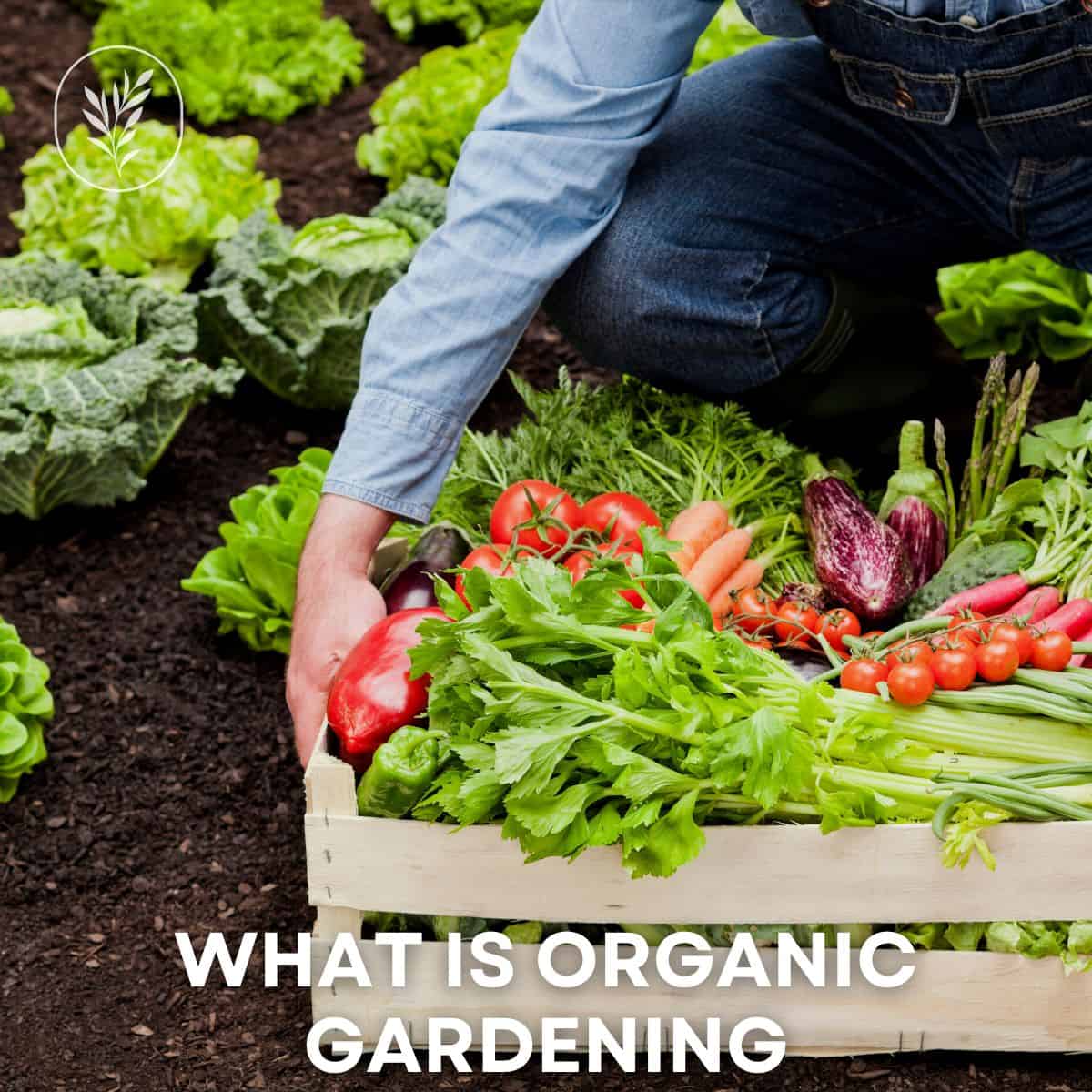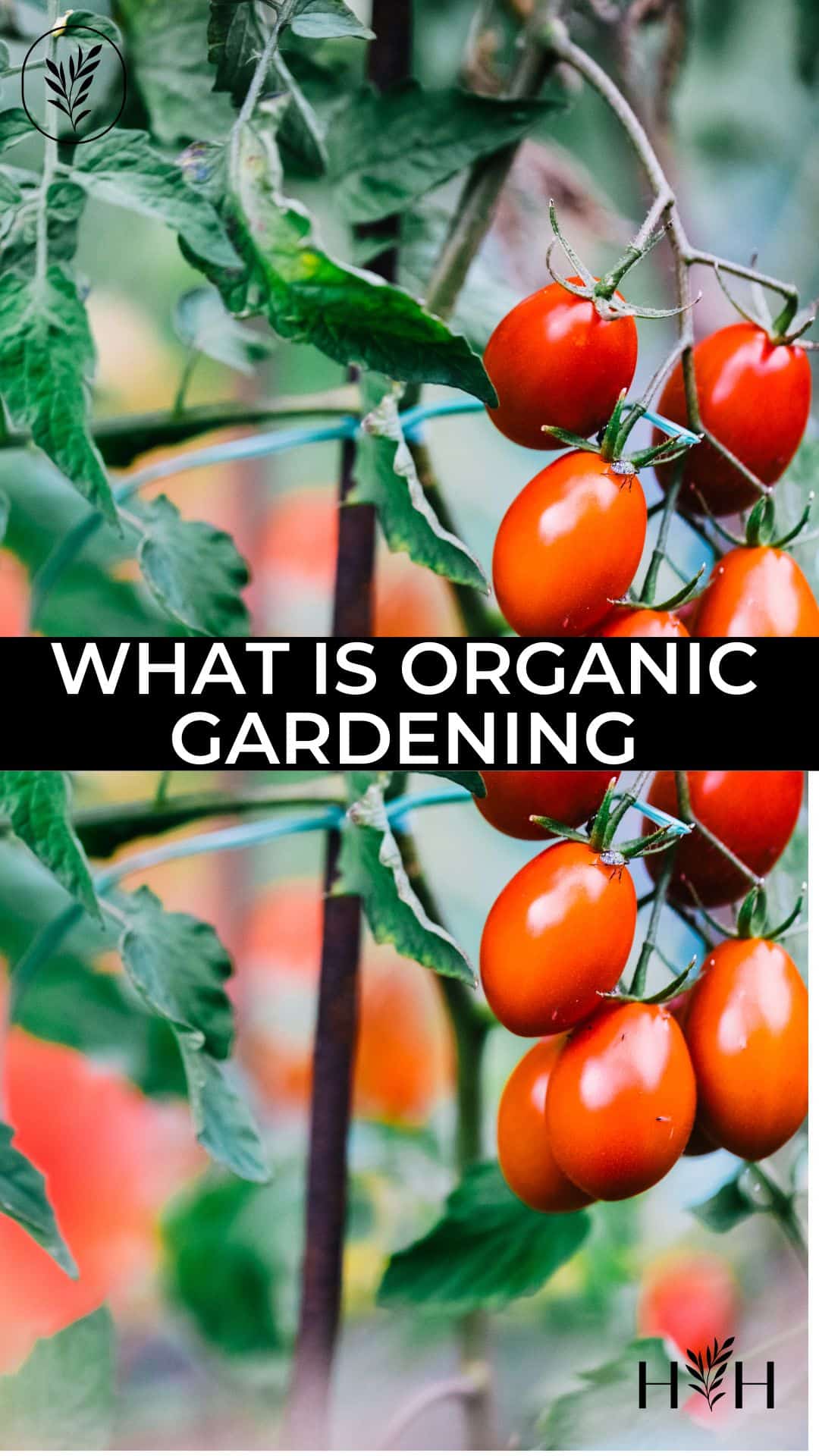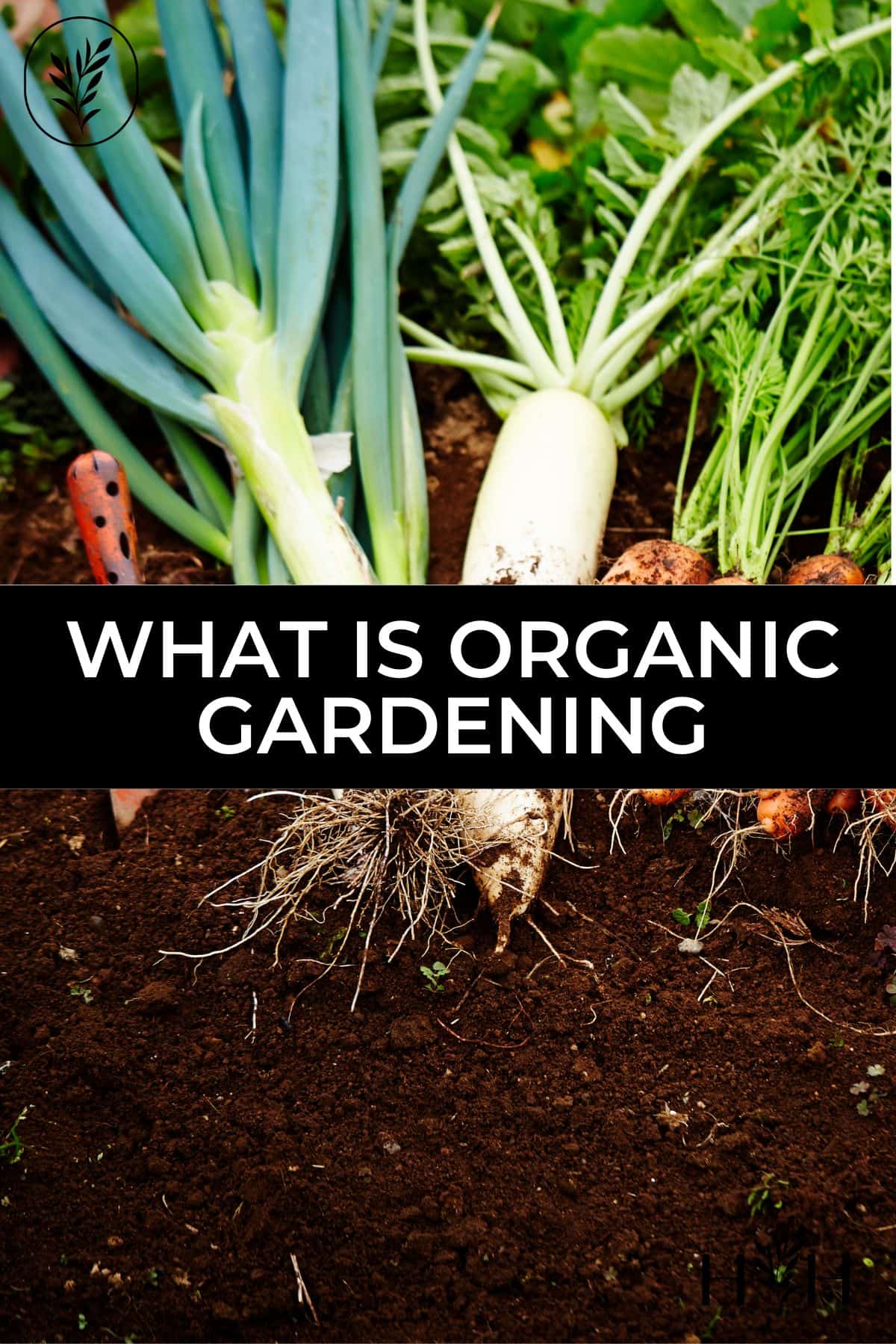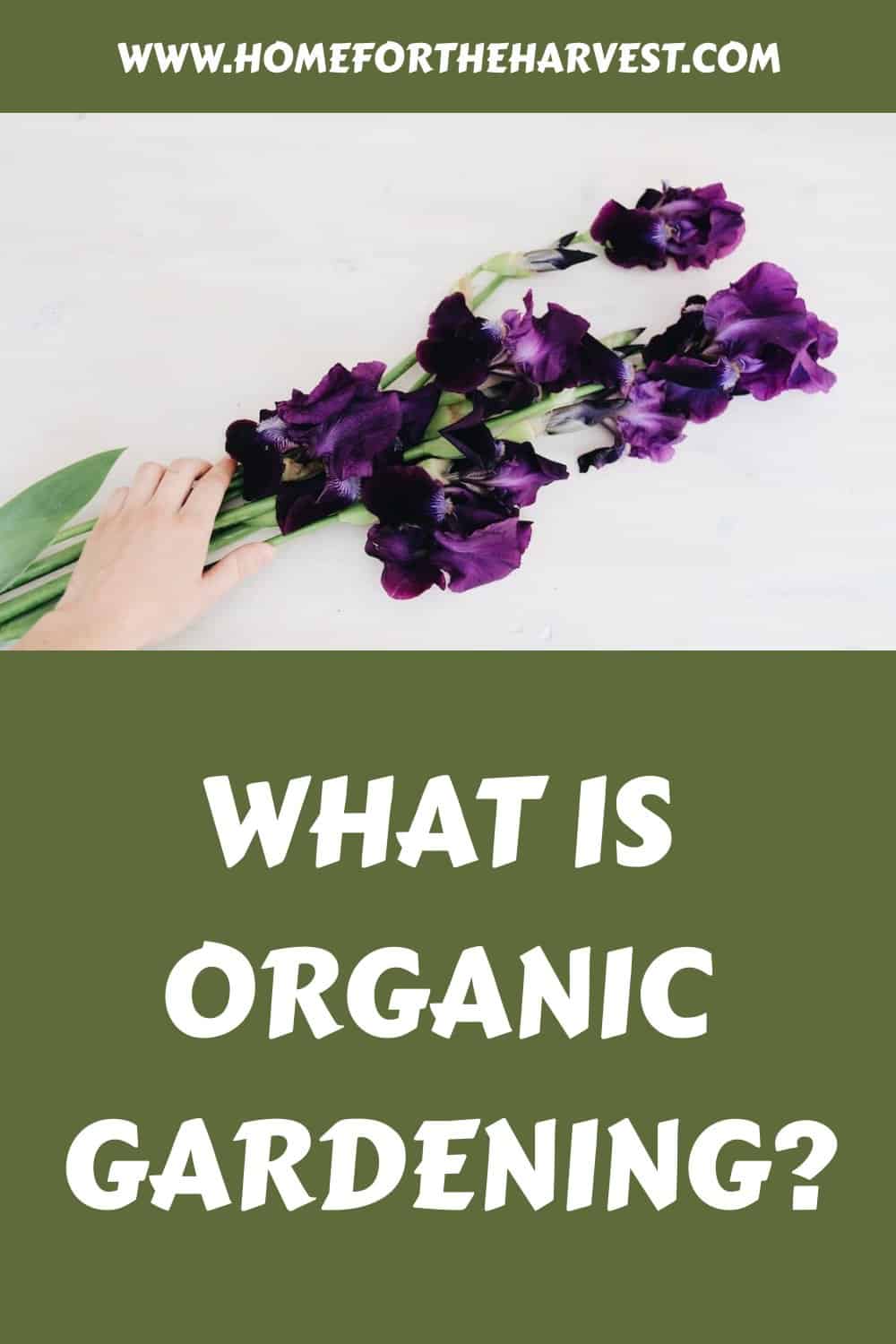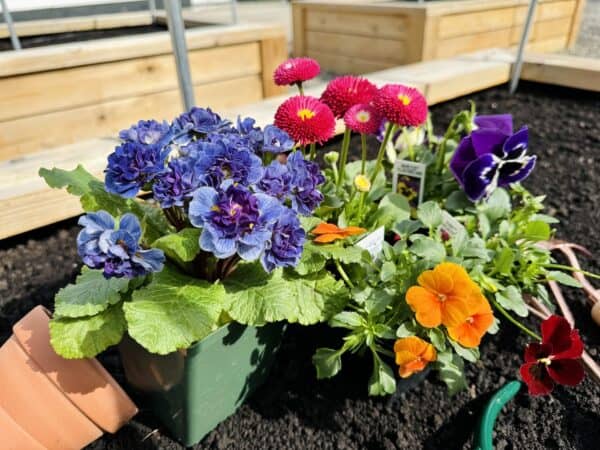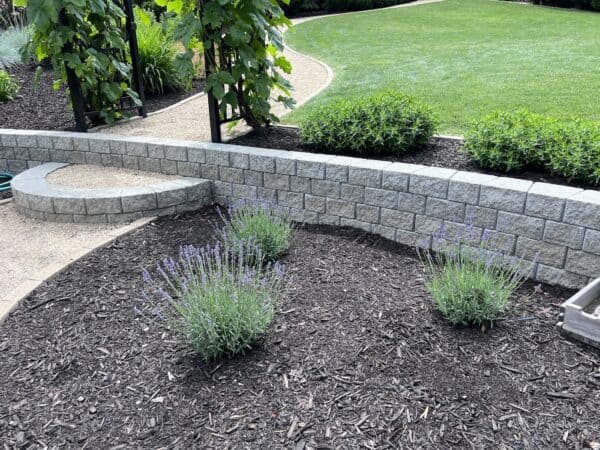Organic gardening uses naturally derived, minimally processed supplies instead of synthetically produced chemicals and other potential environmental contaminants. Organic gardening treats garden soil as a thriving ecosystem to be nurtured, while conventional gardening views soil as an inert growing medium. While both methods can grow plants, organic gardening is generally viewed as more sustainable.
Organic gardening basics
The term organic gardening is used to differentiate it from conventional gardening. To most gardeners, the main difference between organic gardening and conventional gardening is that organic gardening relies on natural systems and materials while conventional gardening requires man-made synthetic fertilizers and pesticides. Organic gardening respects the complex relationships between living organisms in the soil and among the plants, while conventional gardening views the soil and ecosystem as a sterile medium in which to produce food for humans.
Plants in an organic garden are considered in the context of the entire ecosystem surrounding them. All aspects of the garden are connected through a complex system of inputs and outputs. Everything has a purpose and an important role in the ecosystem.
In organic gardening, garden soil provides a growing medium and a thriving, biodiverse ecosystem of life that supports the plants in the garden. The plants that grow in the soil provide food and habitat for beneficial insects, birds, and other garden critters. Some of these critters work to pollinate plants, producing food for humans to eat. Everything works together to create a balanced ecosystem that enriches and supports the garden.

Organic gardening origins
Organic gardening is based on emulating nature. Before synthetic chemicals and pesticides were created, all backyard gardens would have been “organic” by today’s standards. It’s only since the introduction of man-made chemicals that a distinction must be made between organic gardening and conventional gardening.
The term “organic” was popularized by J.I. Rodale in the mid-twentieth century to describe growing methods that avoided the use of synthetic chemical fertilizers and pesticides. Rodale was a publisher, inventor, and avid reader who turned his focus toward natural methods of growing food to promote a healthy lifestyle. Although organic gardening didn’t catch on immediately, it is now certainly returning to the mainstream.
Here is a definition of “organic” from the book Rodale’s Basic Organic Gardening:
“ORGANIC: Materials that are derived directly from plants or animals. Organic gardening uses plant and animal by-products to maintain soil and plant health and doesn’t rely on synthetically made fertilizers or pesticides. In chemistry, “organic describes compounds that contain carbon; this definition is sometimes used to characterize petroleum-based products as environmentally benign.”
Rodale’s Basic Organic Gardening: A Beginner’s Guide to Starting a Healthy Garden, by Deborah L. Martin
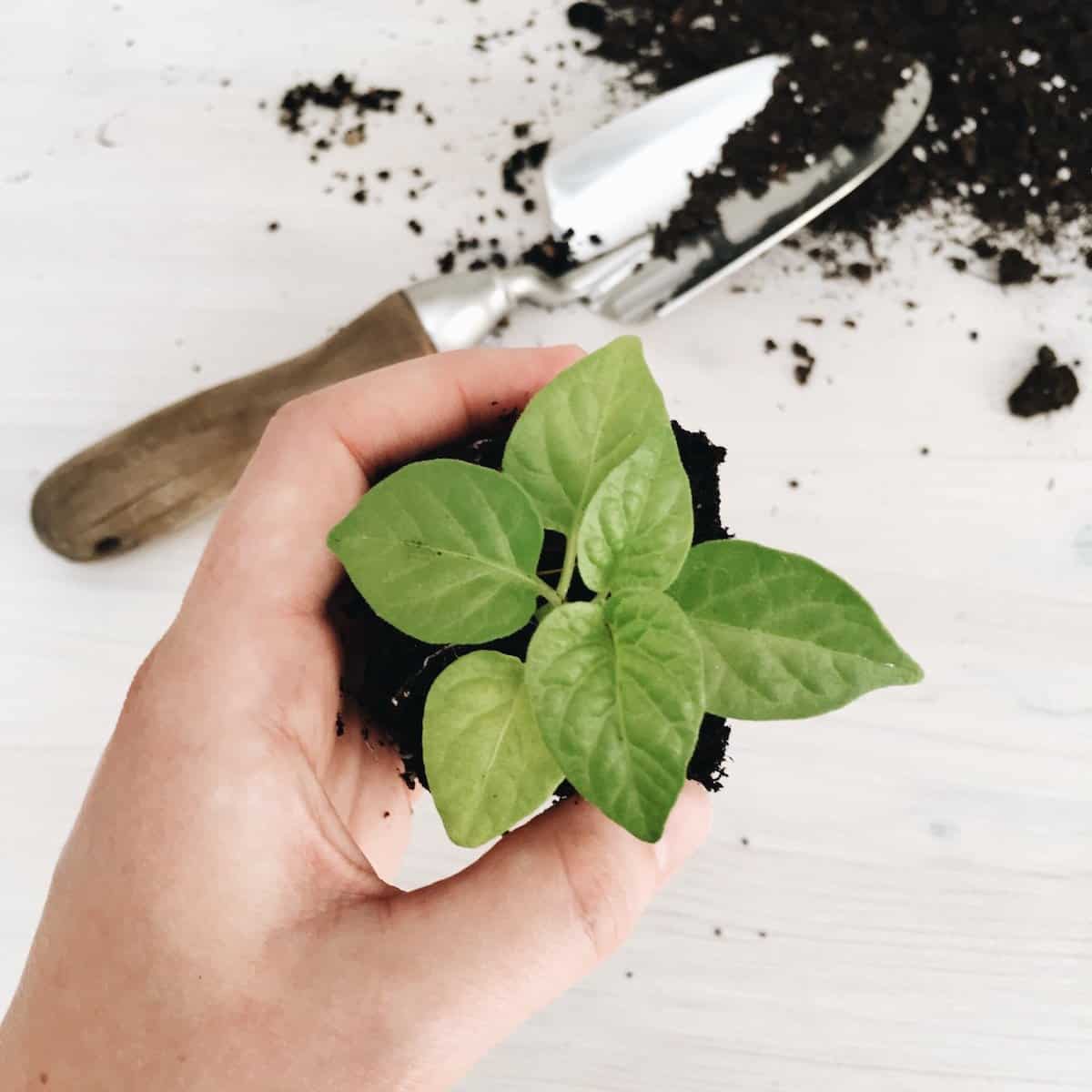
Why it’s so important to choose organic gardening
There are countless reasons to choose organic gardening over conventional gardening. Here are a few of the most important reasons that gardeners choose to go organic:
- Grow healthy food that is free of synthetic chemicals (and avoid chemical residue);
- Support pollinators by providing safe sources of food and shelter for them;
- Learn about and emulate nature’s processes rather than upsetting the balance of the ecosystem;
- Keep pesticides and fertilizers out of your home (brought in with air, dirt, flowers, or veggies);
- Reduce pollution by eliminating pesticide and fertilizer transfer off your property;
- Create habitat for local critters by growing native plants;
- Support healthy soil biodiversity rather than contaminating the soil with chemicals.

Nature and soils
A good part of the success of an organic garden depends on observing and emulating nature. Plants are able to grow in nature without anyone fertilizing them, pruning them, or watering them. The system does all of this on its own, creating a vibrant ecosystem with no one tending to it. Having a successful organic garden depends on learning from and mimicking nature.
Fortunately, the field of organic gardening is not new, and there are lots of great resources to create a healthy organic garden. Focusing on soil health, choosing organic methods of feeding plants, and managing pests in a holistic manner can all help create a thriving garden.
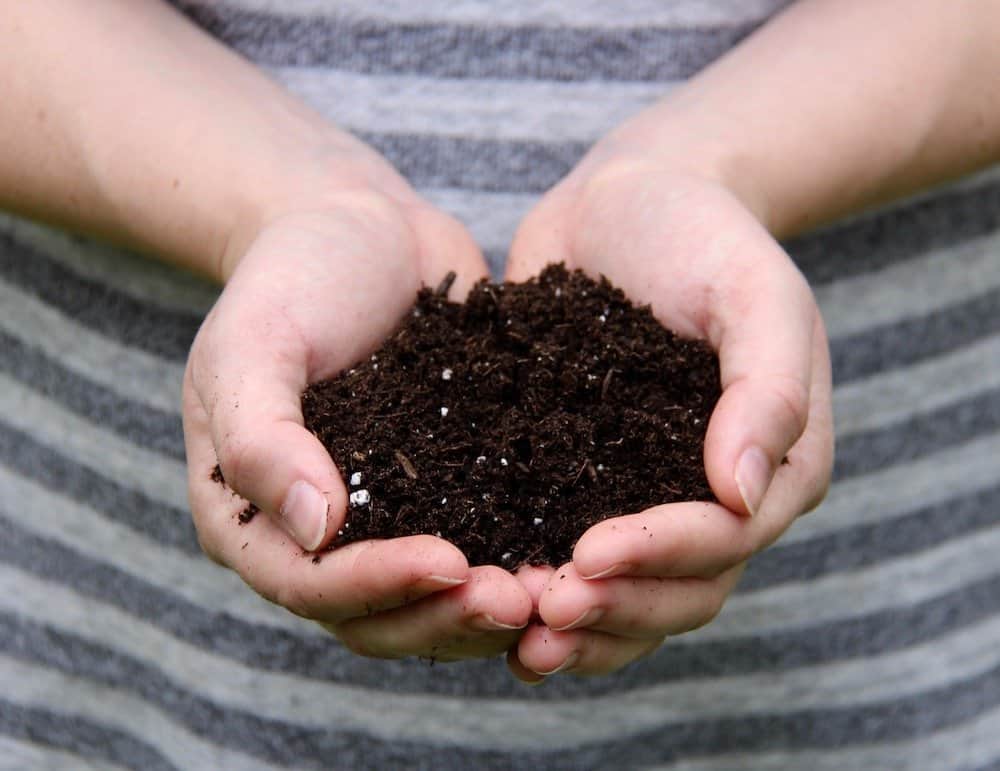
Organic methods of growing food were originally created to preserve the biodiversity of agricultural soil. Organic gardening works with the natural life in soil rather than considering it a sterile medium in which to install plants. There are countless important micro-organisms that live in the upper soil horizons, which are encouraged and supported by organic gardening methods.
Organic gardening uses methods such as crop rotation, nutrient replacement (green manure, compost), and no-till methods to support healthy soil. These methods do not disturb the soil matrix or the micro-organisms that call the soil home.
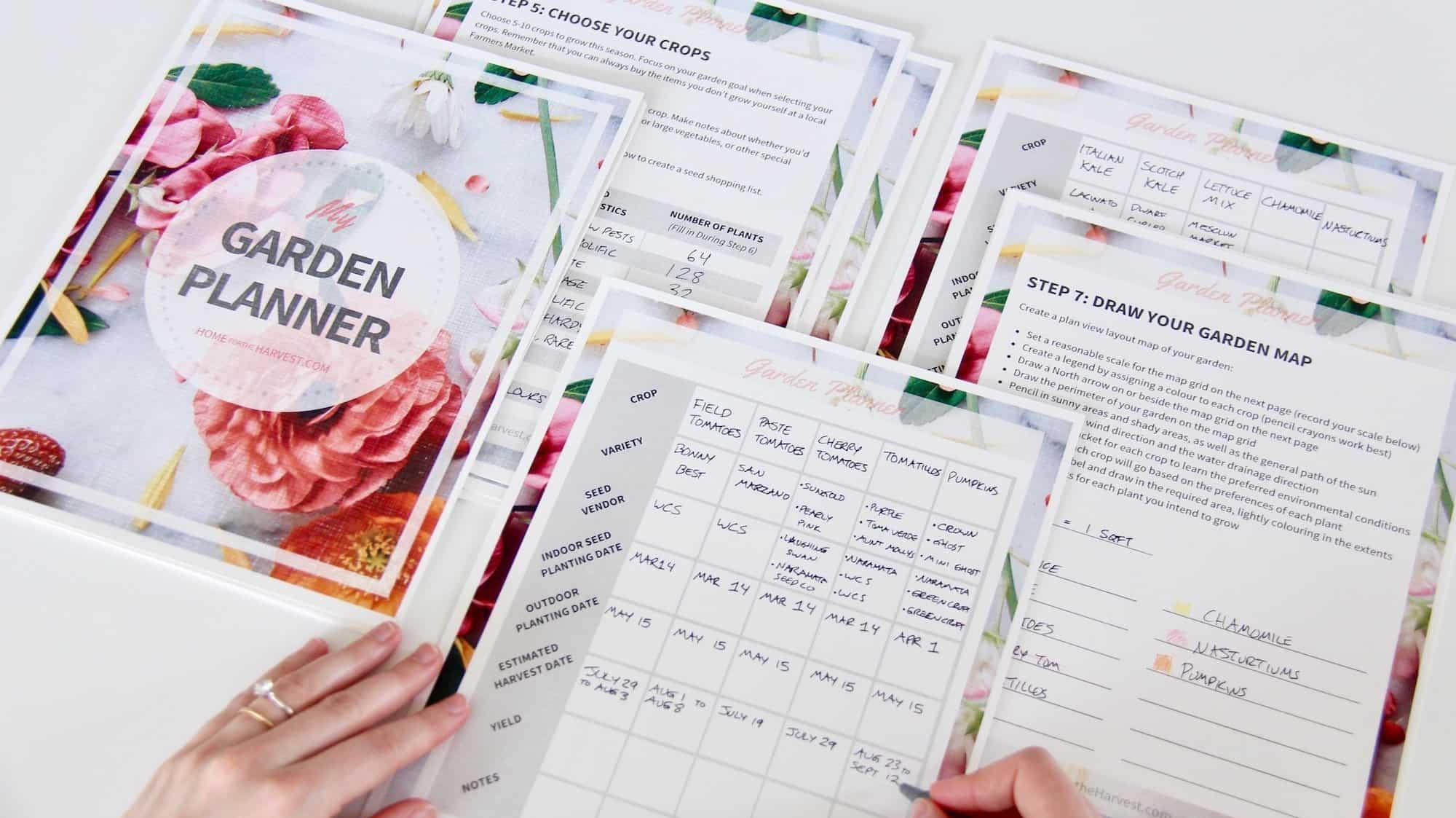
Planning an organic garden
Planning an organic garden is a key part of growing a successful garden. Organic gardeners tend to choose plants suited to the climate and other environmental conditions rather than trying to force plants that just don’t suit the climate. Choosing the right plant for the right place will lead to success far faster than forcing a certain plant to grow somewhere that it won’t naturally grow.
Organic gardening focuses on mimicking nature, not overriding it. There are also advanced methods of garden planning which use organic gardening, such as permaculture, which takes the process of mimicking nature to the next level.
If you’re planning your garden and would like to do so organically, check out this article about how to start a garden which includes a free printable garden planner for you to use!
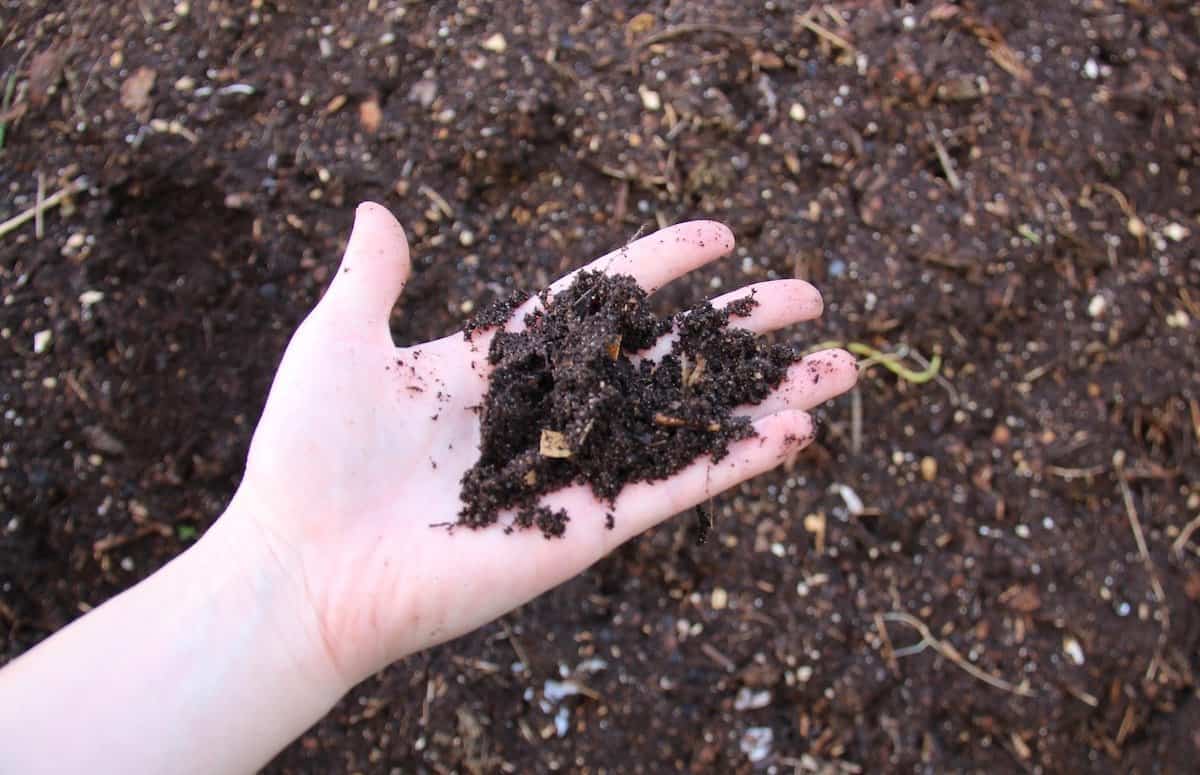
Organic plant food options for your garden
When nutrient-rich materials are removed from the garden for humans to eat or to put into the compost, these nutrients must be replenished for future crops. Nutrients can be replenished by adding organic matter back into the garden.
Feeding your plants organically is possible by using organic soil amendments rather than synthetically produced chemicals. One of the best organic plant foods is homemade compost, made from composted shredded fall leaves and other kitchen and garden trimmings. Keep the organic matter your yard produces on-site, and compost it into yummy plant food for your garden! Compost can be applied directly to your garden as a mulch or even made into “compost tea” to provide a boost of nutrients.
Other options for feeding your organic garden include cover cropping, growing nitrogen-accumulating plants, or purchasing organic plant food. Cover cropping, or green manure, involves planting a healthy cover crop during the off-season which is then tilled into the soil to add back nutrients.
Purchasing organic plant food usually means looking for the OMRI-approved label. OMRI (the Organic Materials Review Institute) is an independent organization that reviews products to create a list of products that are approved for use in organic growing. Look for the OMRI-approved label on any plant food you purchase.

Organic pest control
In organic gardening, pests are controlled by the simplest method possible. For instance, aphids are simply sprayed off with a sharp stream of water. If the aphids continue to return, a simple spray can be made from kitchen ingredients to keep them under control.
The significant presence of a pest in a garden usually means that the ecosystem is not in balance. In organic gardens, gardeners expect to observe some pests here and there throughout the year, but not in quantities large enough to harm plants. Additionally, healthy plants that chemical fertilizers or pesticides have not stressed are more able to withstand and defend against pest attacks.
Organic gardening encourages beneficial insects and critters, including pollinators and pest predators. Pest predators like birds, spiders, and bats can keep pest levels under control without the use of harmful chemicals.
What you can do about pests in your organic garden?
Anyone wondering about what organic gardening is will likely have questions about organic methods of pest control. Non-chemical methods of pest control are used in organic gardening, including floating row covers and sticky traps to keep out flying pests and plant stem collars to deter ground pests.
If insects must be sprayed, there are many recipes for homemade pesticide sprays with ingredients like vinegar, hydrogen peroxide, and castile soap which can safer for use around the garden than some of the chemical sprays available. If you do purchase a pest-control product, look for the OMRI-approved label to indicate it is safe for organic use.
Organic gardeners are also careful to safely dispose of pests. Pests can be sprayed off of plants with sharp streams of water. Infected plants can be hot composted or incinerated. Crops can be rotated to different areas of the garden each year.
Organic gardens also generally include some sort of interplanting. By mixing crops up together, pests cannot easily jump from plant to plant and destroy all of one crop. Mixing crops together can confuse pests and make it less likely for them to find and destroy a crop.
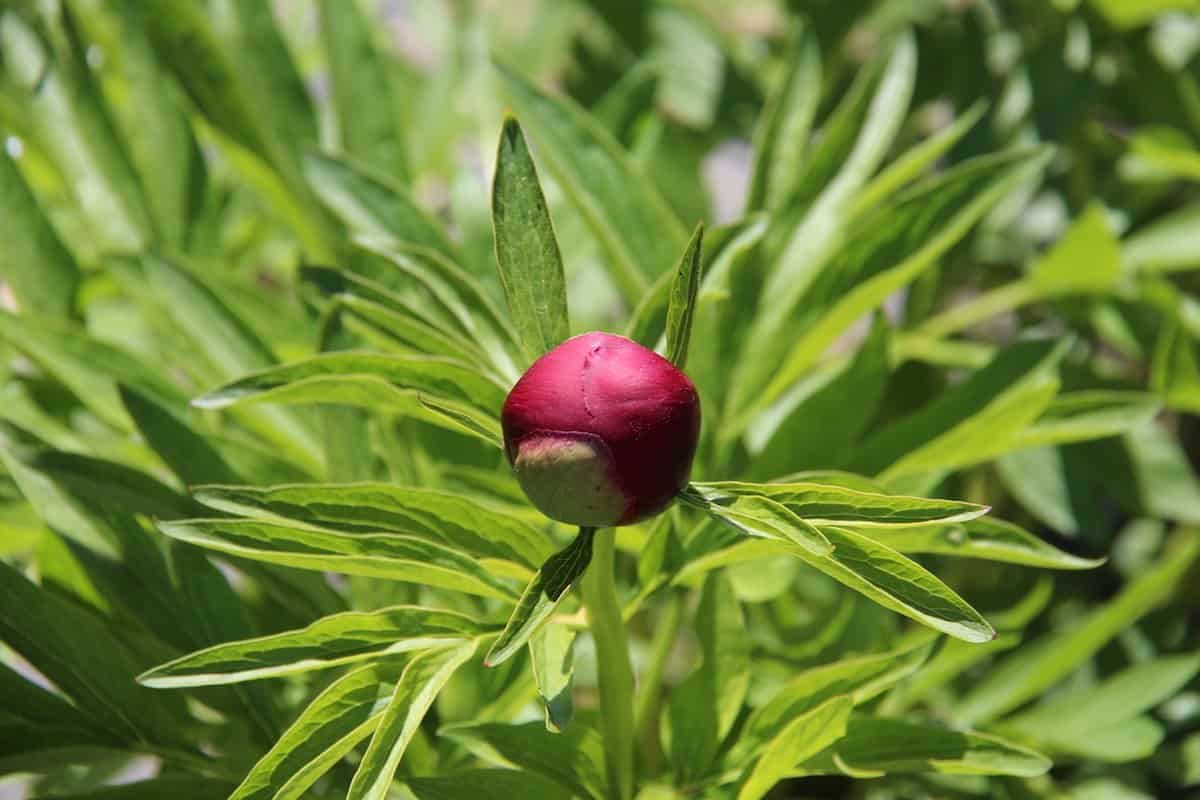
Starting your own organic garden
Organic gardening is not difficult…it simply requires the observation and emulation of what’s already happening in nature. Learning to garden organically teaches a mindful appreciation of the ecosystem that’s already developing in the backyard while also providing a consistent source of healthy food.
Choosing organic gardening over conventional gardening is a great way to connect with nature while also taking up a productive hobby.


